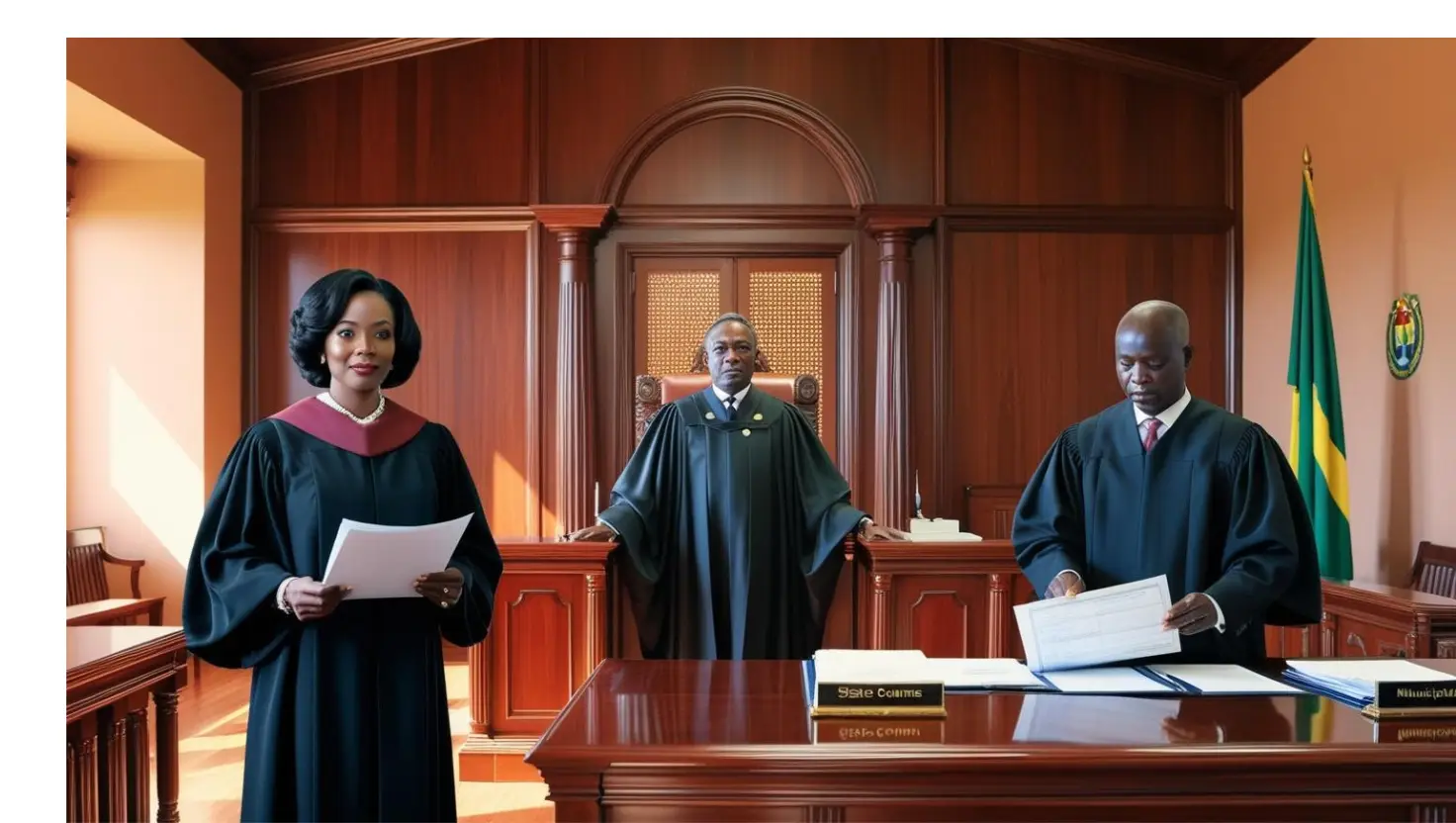Cameroon has a unique legal system due to its historical background, combining elements of both French civil law and English common law. This has led to specific terminologies and roles within the judicial and administrative framework that may not be familiar to everyone. Many people often confuse the terms State Counsel, Council, and Judge, but they serve distinct functions in governance and justice. Additionally, all magistrates in Cameroon are trained at the École Nationale d’Administration et de Magistrature (ENAM), and upon graduation, they can serve either as judges (Magistrats du Siège) or State Counsel (Magistrats du Parquet). These roles can interchange throughout a magistrate’s career.
I was recently reminded of how common these misconceptions are when a friend called me, asking for help in obtaining a birth certificate. He assumed that as a State Counsel, it was part of my job to issue civil documents. I had to explain that birth certificates fall under the jurisdiction of the municipal council, not the judiciary. This confusion is widespread, making it important to clarify these distinctions.
1. Who is a State Counsel?
A State Counsel (or Procureur de la République) is a prosecutor responsible for initiating and conducting criminal prosecutions on behalf of the State. They ensure justice is served by investigating crimes, prosecuting offenders, and overseeing police investigations. State Counsel work under the authority of the Ministry of Justice and report to the Attorney General.
Legal Basis:
- The Judicial Organization Law (Law No. 2006/015 of 29 December 2006) outlines the role of judicial officers, including prosecutors.
- The Criminal Procedure Code of Cameroon (Law No. 2005/007 of 27 July 2005) details the powers of the State Counsel in criminal investigations.
Duties of a State Counsel:
- Directs police investigations.
- Files criminal charges and prosecutes cases in court.
- Ensures enforcement of court decisions.
- Can request pre-trial detention of suspects.
2. What is a Council?
The term Council in Cameroon generally refers to municipal and regional councils responsible for local governance and development. It is not a legal profession but an administrative body that manages local government affairs.
Legal Basis:
- The General Code of Regional and Local Authorities (Law No. 2019/024 of 24 December 2019) governs municipal councils in Cameroon.
- Councils operate under the supervision of the Ministry of Territorial Administration and Decentralisation.
Duties of a Council:
- Manages local development projects (roads, water, sanitation).
- Issues birth and marriage certificates through the civil registry.
- Collects municipal taxes.
- Represents local populations in decision-making.
3. Who is a Judge?
A Judge is a judicial officer who presides over legal disputes and ensures justice is administered fairly. Unlike State Counsel, who prosecutes, a Judge decides cases based on the law. Judges in Cameroon can be magistrates (juges du siège) or presidents of courts. As mentioned earlier, magistrates in Cameroon can transition between serving as State Counsel (Magistrats Debout) and Judges (Magistrats du Siège) throughout their career.
Legal Basis:
- The Judicial Organization Law (Law No. 2006/015 of 29 December 2006) defines the structure and role of judges in Cameroon.
- The Civil Procedure Code and Criminal Procedure Code outline how judges handle cases.
Duties of a Judge:
- Hears and decides cases impartially.
- Interprets laws and applies them to disputes.
- Issues rulings and judgments.
- Can preside over criminal, civil, and administrative courts.
4. Key Differences in a Table Format
| Feature | State Counsel | Council | Judge |
|---|---|---|---|
| Works for? | Ministry of Justice | Ministry of Territorial Administration and Decentralisation. | Ministry Of Justice |
| Role? | Prosecutes crimes | Local administration | Decides cases |
| Power in court? | Represents the State | No court role | Decides legal disputes |
| Example | Prosecuting theft | Managing city projects | Judging a land dispute |
Conclusion
Understanding the distinction between State Counsel, Council, and Judge is essential for all Cameroonians. While State Counsel handle criminal prosecutions, Judges adjudicate cases, and Councils manage local governance. Additionally, due to Cameroon’s unique legal structure, all magistrates are trained at ENAM and can switch between serving as State Counsel and Judges throughout their careers. Knowing these differences ensures proper engagement with legal and administrative institutions in Cameroon.
The next time you need a birth certificate, make sure you’re calling the right office! Have any questions? Drop them in the comments, and let’s discuss!


